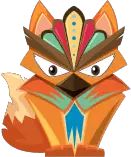Categories :
Random super hero

Hi, It's me Gerenimot!
Generate a word.
random super hero generator
With our random superhero generator you will be able to draw a Marvel or DC Comics hero. Mimic the superheroes of your favorite movies like spiderman and batman. You have surely collected a whole bunch of figurines of your heroines throughout your childhood, but do you know them all? Test your knowledge of the world of cinema with Superman and the Avengers. The X-men are also in the game! If you prefer villains you can filter to only play with super villains.
What is a comic?
There are many definitions, and frankly, they are all good. I think the most useful definition is that a comic is a story presented in sequential art. This is a slightly more modern definition than the two most frequently cited definitions, namely that a comic is a book that uses sequential art (as opposed to a novel that uses sequential art, or to a newspaper), or that a comic is a comic book. (Of course, this definition could be expanded to include graphic novels, but that's another discussion).
The first comic is Famous Funnies #1, published in the summer of 1934. It was a collection of newspaper comic strips, with a few text pages preceding the following comic. (There is some disagreement as to whether the text was originally included, but it is present in the reprint I have). It was 64 pages, cost 10 cents, and had a print run of 150,000. It was published by Eastern Color Printing, which is best known for color Sunday newspapers. Eastern secured the services of Dell Publishing to print the books, and Dell, in turn, asked several comic book companies to provide material for the book.
So comics as a form was a commercial enterprise from the start. Publishers saw an opportunity to make money from material that had previously been freely available, and they took it. All the "competition" we've seen since is based on this same model.
The first issue of Action Comics, which contained Superman's first appearance, was published by DC Comics in June 1938. Action Comics #2 was published in the fall, but was not a "comic book" in the sense modern of the term, because it was not a collection of comics. It's more of a long story, with a few pages of text at the start, and it costs 40 cents. It was printed by National Periodicals, which was to become DC Comics, which was to become DC Entertainment, which was to become DC Comics again.
Random Word Generator
The Random Word Generator is a tool to help you create a list of random words. The tool generates random words for you to use in your writing or other creative projects.
Random in Computers
Computers can generate truly random numbers if given a source of entropy. This is used in cryptography where truly random numbers are needed, for example for creating encryption keys. Computers can also be used to simulate random events. By generating a series of random numbers from a stochastic process, like a Poisson process or a Markov process, a simulation of the process itself can be obtained. This is used in computer animation for the generation of natural looking phenomena, for example the way water flows in a stream. Random number generation is also used in statistical sampling to generate a representative sample from a population. If a sequence of numbers is naively generated from a true random number generator, the numbers may appear to have a pattern. The period of this pattern is the length of the seed number used. Once the whole seed number has been used, the sequence repeats. Since computers can only store and manipulate numbers as a discrete set of values, in practice all computer-generated random numbers are random. That is, each number is associated with a specific algorithm and stream of data, and the characteristics of that data affect the numbers generated. In other words, the sequence of numbers is determined by the program, which is a deterministic process. The problem is that if the algorithm is not truly random, it is possible, by examining the patterns in the sequence of numbers, to predict future values in the sequence. This is a form of statistical attack. This can be countered by changing the seed number periodically. With each new seed, a different sequence is started, which as far as is known, has an unpredictable pattern. This is exactly what is done for the sequences in many types of random number generators, including those used in computer graphics and games. In these applications, the sequence of numbers is usually displayed. Anyone who knows the algorithm can then "re-seed" the generator, with the seed number found from the sequence, and thus generate the same sequence of numbers. In computer graphics, this is not considered a problem, as what is being displayed is the pattern, not the numbers. In cryptography and computer security, however, it is a problem, since an attacker can use such a sequence of numbers to predict future values. random numbers are random enough for most practical purposes. For example, they may be used in simulations involving games of chance, like poker or blackjack. The random numbers are used to determine the outcome.

 Categories
Categories